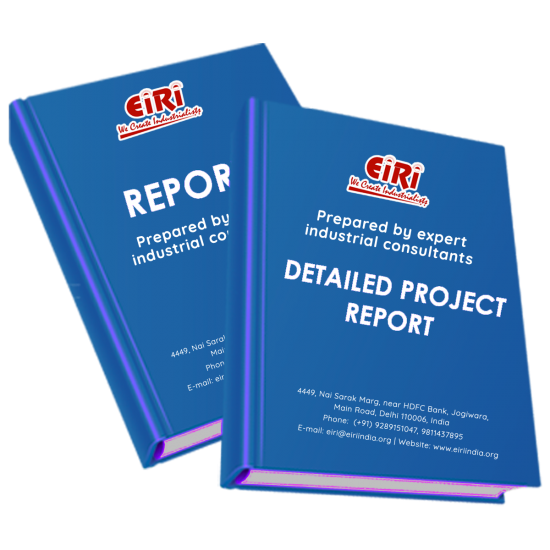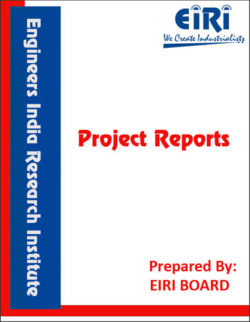The project report includes Present Market Position and Expected Future Demand, Market Size, Statistics, Trends, SWOT Analysis and Forecasts. Report provides a comprehensive analysis from industry covering detailed reporting and evaluates the position of the industry by providing insights to the SWOT analysis of the industry.
Fertilizers were welcomed with open arms, for they immediately increased the yield of crops. But their recurrent use has done an irreparable damage to the environment. Excess use of chemical fertilizers has led to the pollution and contamination of the soil, has polluted water basins, destroyed micro-organisms and friendly insects, making the crop more prone to diseases and reduced soil fertility. More and more farmers are now looking for more eco-friendly options. Bio-fertilizers have, to some extent provided an answer to the soil contamination.
Bio-fertilizers are eco-friendly fertilizers, which are being used to improve the quality and fertility of the soil. Bio-fertilizers are made from biological wastes and they do not contain any chemicals. They are beneficial to the soil, as they enrich the soil with micro-organisms that help in producing organic nutrients, which in turn help the soil to fight diseases. They therefore enrich the nutrient quality of the soil. They also restore the depleted nutrients of the soil.
The main sources of bio-fertilizers are bacteria, fungi and cyanobacteria (blue-green algae). Plants have a special relationship with bacteria and fungi. They provide the plant with nutrition, resistance against diseases and the ability to combat worst climatic conditions.
Bio-fertilizers are being viewed as the future of fertilizers, as they have the ability to solve the problems of salinity of the soil, chemical-run offs from the fields. They, therefore, ensure the well being of the nutrients present in the soil, therefore making the soil more fertile with time.
Bio compost: It is a kind of organic fertilizer, which is prepared from the waste of the sugar industry. The waste is decomposed using a number of human and plants friendly bacteria and Fungi. Bio compost consists of nitrogen, phosphate solubilizing bacteria and plenty of useful fungi like the decomposing fungi. This biofertilizer helps the farmers to increase soil fertility and thereby increase the yield of the crops
Vermi Compost: It is also an organic fertilizer containing nitrogen phosphorus, potassium, sulphur, organic carbon, sulfur, hormones, enzymes, etc. If used over a period of time, the soil becomes extremely fertile and all the lost nutrients are restored back to the turf and the soil remains fertile
Phospho: This is also a kind of bio-fertilizer, which releases insoluble phosphorous in the soil, making it more fertile
Rhizo: It is a bacterial, which induces nitrogen fixing nodules on the roots of vegetables like peas, beans, etc., thereby, playing an important role in agriculture
Azotobacter: Nitrogen plays an extremely important role in plant growth. Azotobacter improves the quantity of atmospheric nitrogen in the soil and makes it available to the plants. It also shields the roots from other pathogens existing in the soil
Trichoderma: It is an eco-friendly fertilizer, which acts as a biocontrol agent and is hyper parasitic against different pathogens in the field
Composter: A composter that breaks down all organic substances like cattle waste, dead leaves, etc. present in the soil and thereby increase the productivity of the soil
Tricho-Card: It is an effective bio-fertilizer, which is an effective destroyer of eggs of many rodents, which eat plants and leaves. It is effective when used for many plants namely sugarcane, cotton, brinjal, corn, jawar, paddy apple, etc.
The name itself is self explanatory. The fertilizers are used to improve the fertility of the land using biological wastes, hence the term biofertilizers, and biological wastes do not contain any chemicals which are detrimental to the living soil. They are extremely beneficial in enriching the soil with those micro-organisms, which produce organic nutrients for the soil and help combat diseases. The farm produce does not contain traces of hazardous and poisonous materials. Thus those products are accepted across the world as Organic ones. Hence for organic farming the use of biofertilizers is mandatory.
Chemical fertilizers mainly, Urea, D.A.P. Super Phosphate, Potash, Zinc Sulphate etc. are being used since long back to boost the crop production which has adverse effects on soil biota thereby increasing the cost of cultivation. It also causes health and environmental hazards along with decline in productivity and quality of produce.
In nature there is a number of useful soil micro-organism which can help plants to get nutrients. Their utility can be enhanced with human intervention by selecting efficient organism culturing them and adding them to soil directly or through seeds. The cultured micro organism beneficial for crop growth and soil fertility packed in some carrier material for easy application in the field are called Biofertilizers.
It is intended to prepare a Feasibility Report to install 2000 Litres/Day Biofertiliser production facility as a Green Field Project.



